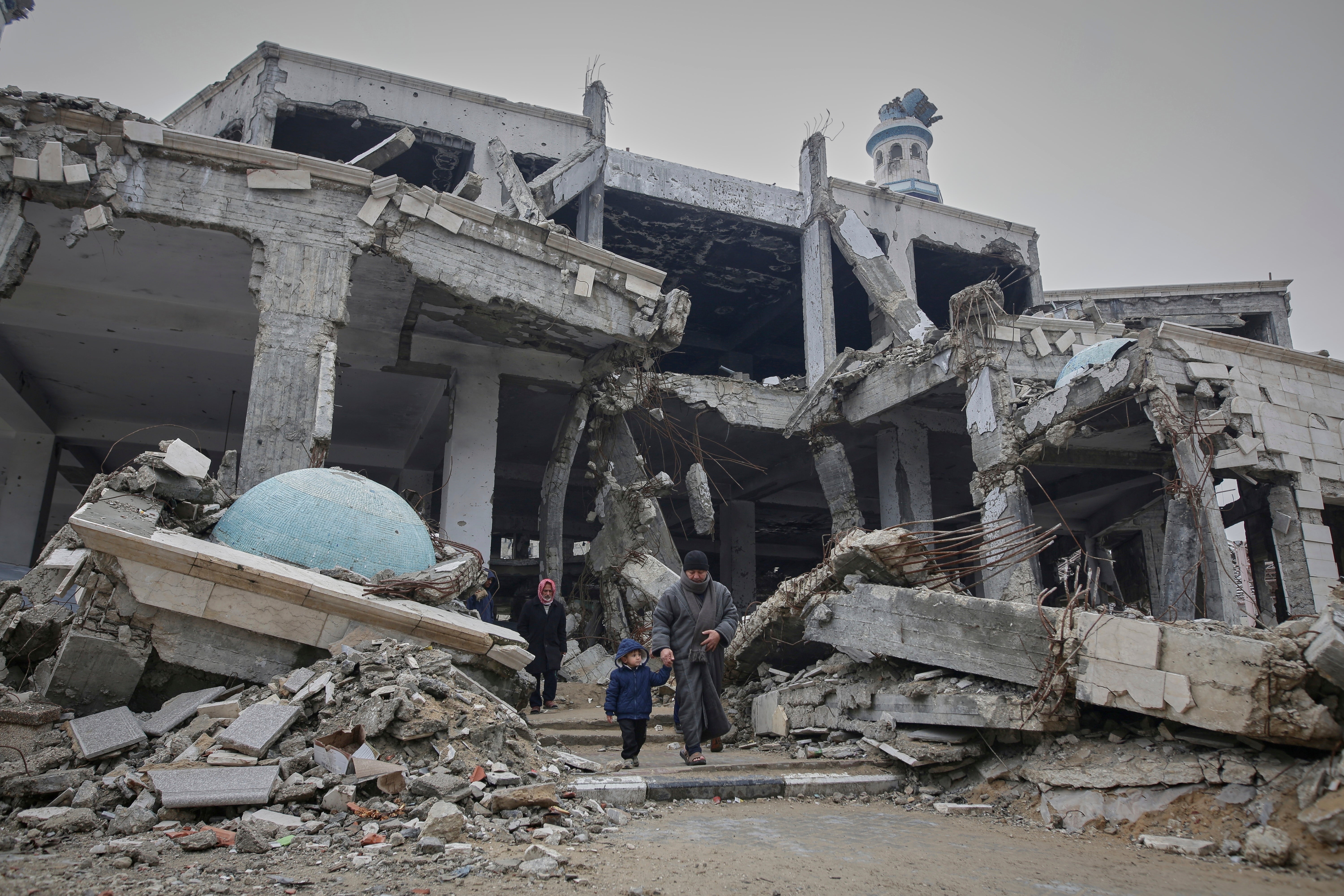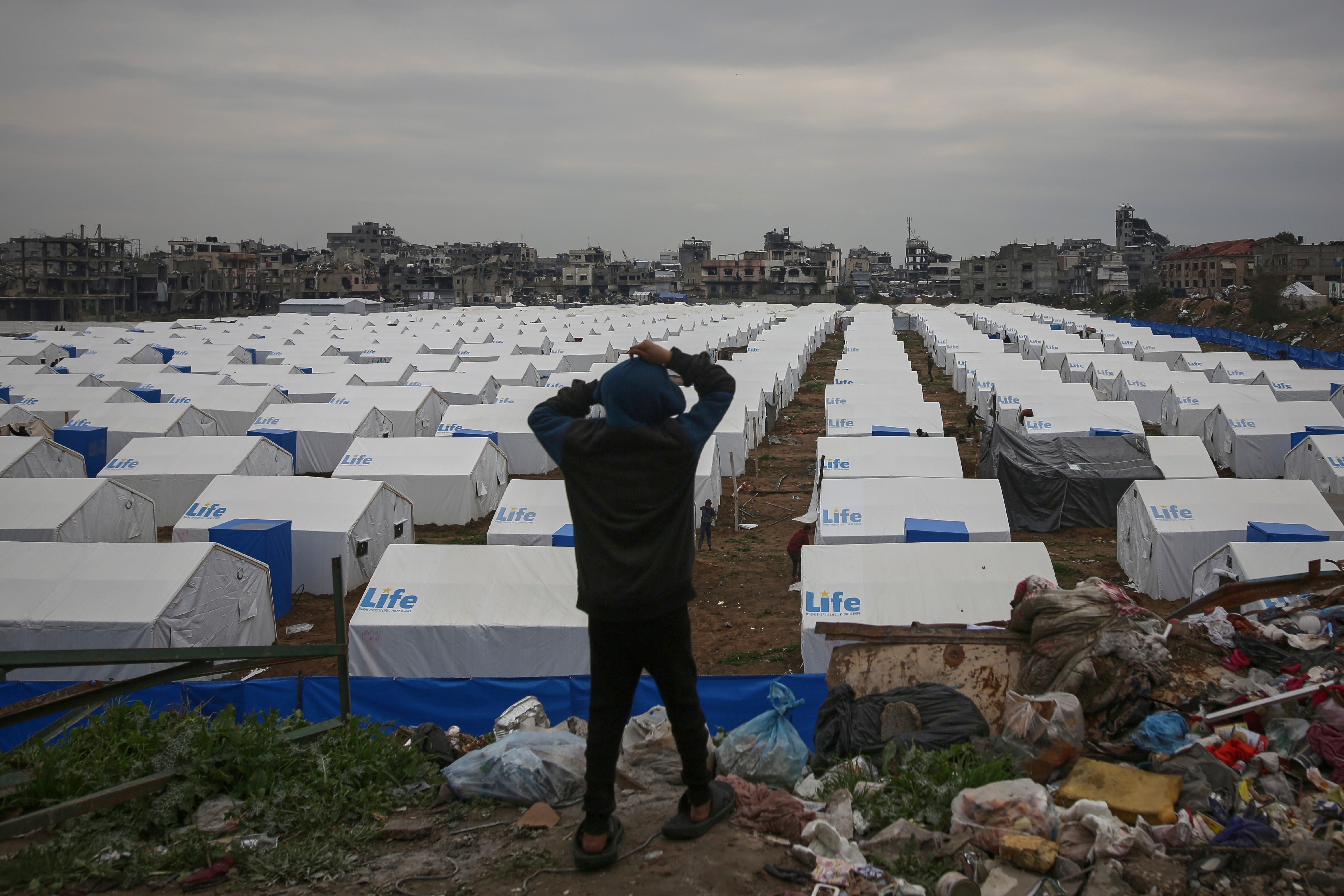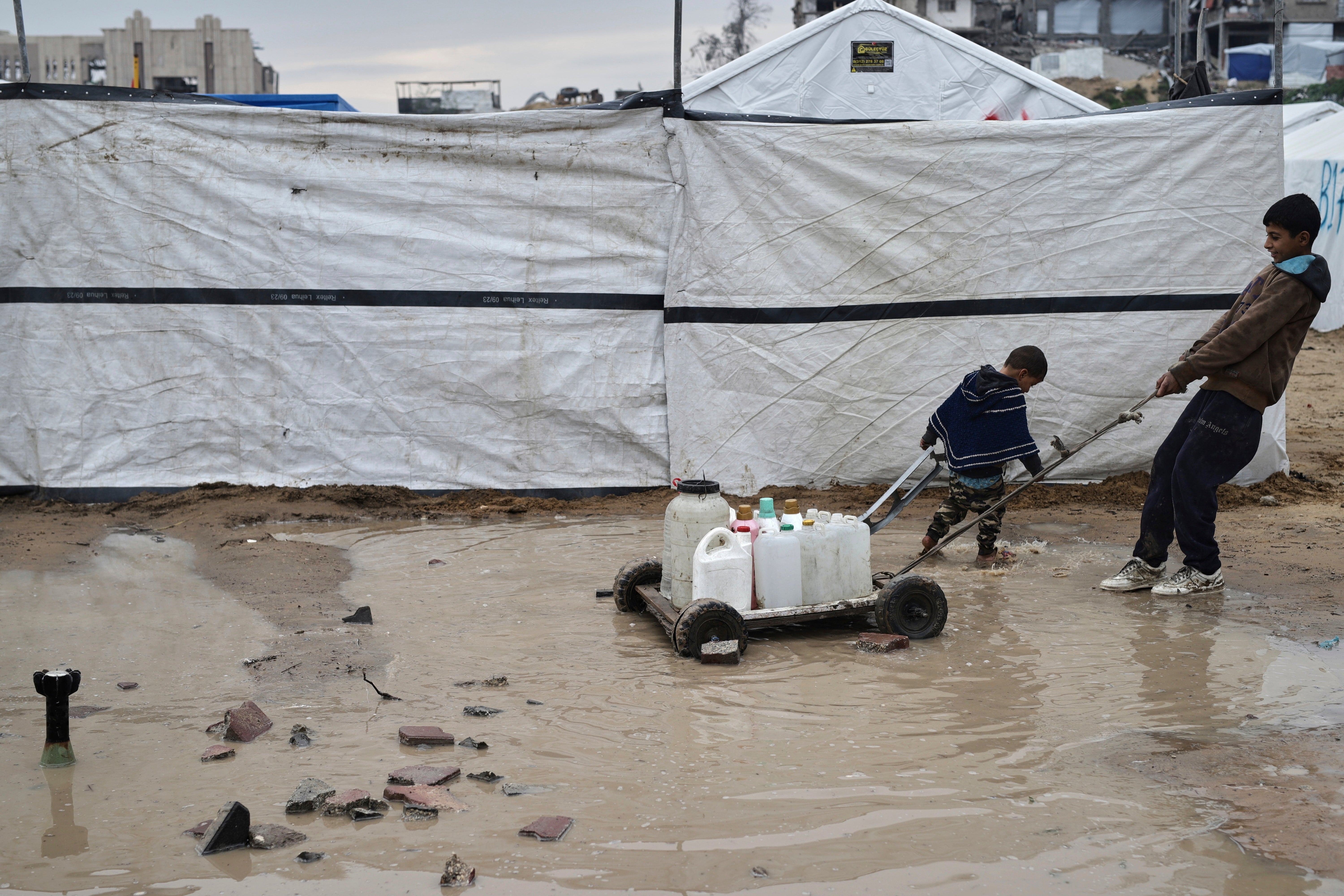Food prices are soaring, hospitals have ground to a halt and people are burning rubbish to cook, Palestinian civilians and medics have warned after Israel suspended the entry of goods and electricity into Gaza.
The move has led to a hike in prices of essential foods, as well as fuel, forcing many to ration their meals. The disruption of power is also affecting wastewater treatment plants and a water desalination plant that produces clean water.
Rahma Salem, 38, a mother of seven, said that foodstuffs including meat, chicken and vegetables are disappearing, and what is available – such as potatoes – have nearly quadrupled in price.
“How can I feed my children? Even water has become less available after the announcement of cutting off electricity to desalination plants,” she said.
With the lack of cooking gas and now no firewood, she said they have been reduced to burning rubbish, including plastic, to try to cook, which is making her family sick.
Last week, Israel was condemned by countries including the UK when it blocked the entry of supplies, including food, medicine and fuel, to the war-ravaged territory.
It said it was doing so to put pressure on the Hamas militant group to extend the first phase of the ceasefire agreement, which ended last weekend.
On Sunday, in an echo of the siege it imposed in the earliest days of the war, the Israeli authorities then announced they would also cut off electricity supplies.

Kifah Rahman, 53, who is in the largely destroyed north of Gaza, said there is nothing to buy in the markets anymore.
“Everything is unavailable in the markets after the closure, and if you can find it, the prices are very expensive to buy, including flour, meat, vegetables and fish,” she said. “Our children are deprived of everything.”
Healthcare officials said they were concerned as hospital generators are running out of fuel and supplies of medicines are running low.
“The situation is catastrophic in the literal sense. The existing generators are worn out, and the fuel is not enough. There is no potable water; the simplest necessities of life are not available,” said Sohaib Al-Hams, director of the Kuwaiti Hospital.
He added that ambulances have stopped working as a result of the almost complete halt in the entry of petrol.
Israel launched an unprecedented assault on Gaza after the 7 October attacks on the south of the country by Hamas, during which the militants killed more than 1,200 people and took more than 251 hostages.
Since then, Israel's onslaught in Gaza has killed more than 48,000 Palestinians, according to Gaza health officials, left most of its people destitute and razed much of the territory.
Israel previously cut the power supply at the start of the war, and on Sunday, Israel’s energy minister Eli Cohen said he had instructed the Israel Electric Corporation not to sell electricity to Gaza in what he described as an effort to put pressure on Hamas to free hostages.
This would affect a wastewater treatment plant presently supplied with power, according to the Israeli electricity company.

The Palestinian Water Authority told Reuters that the decision would halt operations at a water desalination plant that produces 18,000 cubic metres of water per day for the population in central and southern areas of the Gaza Strip.
"The decision is catastrophic; municipalities will now be obliged to let sewage water stream into the sea, which may result in environmental and health risks that go beyond the boundaries of Gaza," said Mohammad Thabet, a spokesperson for the Gaza power distribution plant.
The decision to cut aid last week piles pressure on the population in Gaza, which numbers more than two million and is almost entirely dependent on aid, warned the United Nations Palestinian refugees agency, UNRWA.
UNRWA commissioner general Philippe Lazzarini said on Monday that it will deepen the hunger crisis in the strip.
Hamas describes the measure as "collective punishment" and says it will not be pushed into making concessions at the discussions.

A fragile US, Qatar and Egypt-brokered ceasefire has been in place since 19 January. So far, Hamas has exchanged 33 Israeli hostages and five Thais for around 2,000 Palestinian prisoners and detainees.
But the truce's initial 42-day stage has expired, and Hamas and Israel have been at loggerheads over the second and third phases, which tackle the post-war governing of Gaza and the future of Hamas itself.
Underscoring the fragility of the ceasefire, an Israeli airstrike killed one Palestinian in the Bureij camp in central Gaza, medics said. There was no immediate comment from Israel.
Arab mediators Egypt and Qatar, and the US, are currently trying to salvage the ceasefire deal and hold talks with Hamas leaders in Doha, with Israeli negotiators arriving on Monday.
In Gaza, families say they are desperate.
“For example, 1kg of onions was five shekels, it became 10, 1kg of potatoes was seven shekels, it became 25 shekels now, there is now no meat or chicken, and so on for the rest of the food items, so how can I provide food for 10 members of my family?” Rahma asked in desperation.
“Everything is at a standstill – electricity, water, education, and all schools have been turned into shelters. My daughter, who is 10 years old, only dreams of having a chicken. Her dreams have become limited to finding chicken, while she was supposed to dream of becoming a doctor or a scientist,” she added.
Kifah said: “We are waiting for nothing. We are waiting for an unknown future, amid threats of a return to war and displacement.”
UN-backed rights experts hear Palestinians' allegations of abuse in Israeli custody during the war
Middle East latest: Israeli fire kills 4 Palestinians in Gaza Strip, 3 in the occupied West Bank
Trump warns that ICE’s arrest of Palestinian activist at Columbia is ‘first of many’
Syria’s leader signs deal to integrate Kurdish forces into new regime







